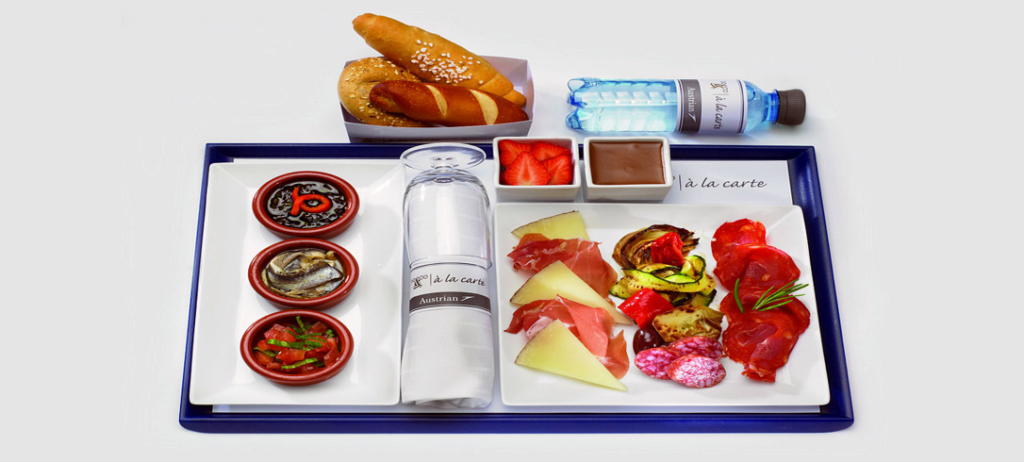
INTRODUCTION
- Also known as In-flight meal/airline food/airline meal
- A meal served on board a commercial airliner.
- Specialist airline catering services prepare meals.
- A tray or airline service trolley is used
- Meals are varied in quality and quantity
- The types of meal – categorised – classes of travel.
- Meals may be snacks to a seven course gourmet meal
- Economy class to first class long haul flight.
- Meals are offered wides from country to country
HISTORY
In 1920s,
- Daimler airway pioneered the service of light refreshments.
- The flight attendant/cabin boy, procured food from local markets
- While refuelling the plane, the passengers used to have their meals.
- The first airline meals were served by Handley Page Transport.
- Sandwiches and fruits were the main meals.
- Whereas only Chewing gum was served in Pan Am flight 1929, to prevent airsickness .
- The flight was extremely noisy and uncomfortable.
- In the late, 1920s, Western Air Express – 1st flight – served in-flight meals
- This airline was from Los Angeles to San Francisco.
- Fried chicken, cake, fruits and sandwiches were included.
- Main motive was to distract from unpleasant flight experience.
In 1930s,
- A specious dining areas were provided to the passengers
- Freedom to move around and mingle while having meals
- Thus this era described as “Most romantic “ era of air travel.
- Aircraft lounges were designed and accompanied with posh chinaware and tablecloths.
- 1st flight kitchen was based in Oakland, California
- Scrambled eggs or fried chicken were available in choice as main course.
- Boeing 247s and Douglas DC-3s had more space for hot stoves and fridges
From 1940s – 1970s
- Meals were provided in every flight after World War II.
- “Sky plate” meals offered to naval troops
- Frozen foods were served by Pan Am in flights
- Fish with hollandaise sauce and lamb cutlets with potatoes were served 1954.
- International Air Transport Association (IATA) recognised economy/ as distinct travel class.
- Airlines cover longer distances from one state to another state or country.
- It takes long hours to reach at destination
- That the flight attendants/cabin crew or air hostess are responsible for taking care of travellers.
- There is a commissary
- In 1936, united airlines introduced the “world’s first flight kitchen,”.
- A kitchen that was owned and operated by the airline to produce inflight food.
- At the kitchen in oakland, california, united employees prepared hot meals,
- While also giving special attention to the effects of altitude on the taste of food.
- If there a short distances and flight times are involved: only snack-type meals or sandwiches and beverages are offered.
- If long distance to be covered, then extensive service of food and beverages are offered.
MEAL ARRANGEMENT
- Individual portion containers
- Sealed, chilled, and stored until required.
- Business or first-class passengers are treated as in first-class hotel or restaurants.
- First-class service may be meat joints carved from a carving trolley as it moves up the centre aisle.
- Served with appropriate garnish and vegetables.
EQUIPMENT
- Fine bone china
- Trolley
- Glassware
- Silver plated tableware
- Plastic/melamine trays
- Posable place mats
- Cutlery
- Tableware
- Serviettes
- Disposable glasses